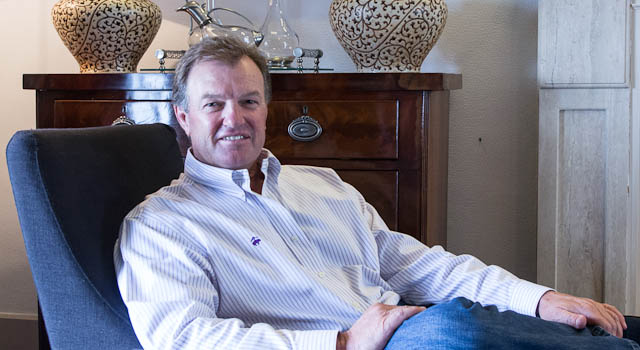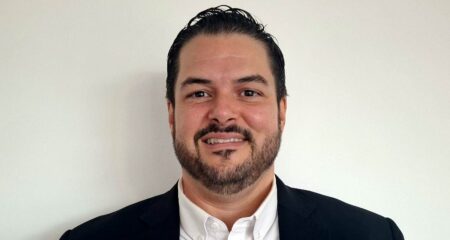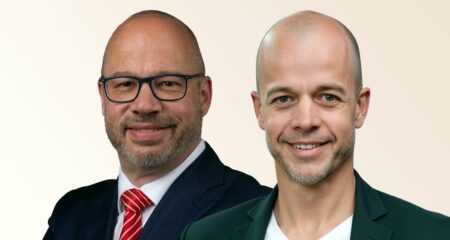
Serial entrepreneur and Dimension Data cofounder Richard Came is warm and welcoming when he greets me at his hilltop home in Johannesburg’s leafy suburb of Houghton. With a panoramic view of Johannesburg’s northern suburbs, the elegant and enormous house is an apt reminder of the business successes Came has enjoyed in the past 25 years.
“We moved in about 15 years ago,” Came says. “It took a year to renovate the place. These 100-year-old houses are lovely, but they tend to need a lot of work.” Thankfully, Came and his wife and children were living elsewhere at the time, making the refurbishing less stressful than it might otherwise have been.
Educated at Roosevelt High School in Johannesburg, and with a BA degree majoring in law and an MBA from Wits, Came worked as a management consultant at what was then Arthur Andersen Consulting — now Accenture — but later forewent the security of a salary to join the then-fledgling IT company Didata in 1985.
Didata founders Bruce “Doc” Watson, Jeremy Ord and Came had been schoolmates at Roosevelt and had long dreamt of starting a business together. “There’s the school of thought that says you should never get into business with friends or relatives; others say it’s first prize,” Came says, adding that he falls firmly into the second camp.
Ord, who is now executive chairman of Didata, proposed that Came and Watson establish a business focused on computer-to-computer communication. The result was Causeway Communications, in which Didata later took a 25% stake. The two companies were eventually fully integrated in 1994.
IT services to fibre
Today, aside from his work as chairman of the FTTH Council Africa, a fibre-optic telecommunications lobby group, Came is involved in a number of businesses, perhaps most notably a selection of e-commerce companies.
The best known of these are “value-added transaction switching” companies Tradebridge and Healthbridge, which provide secure messaging between organisations. Healthbridge, for example, allows medical schemes, suppliers, hospitals, doctors and other health-care businesses to communicate patient data, medical aid details and similar information securely.
“They’re both classic e-commerce models,” Came says. “They require lots of upfront investment but, once they’re up and running, they tick over with transactions.”
Came also dabbles in the mobile payments space and is involved with a company that handles switching between creditors and debtors. “Some of these companies are part of the legacy of the venture capital funds from Didata,” he explains. The IT giant still holds a 26% stake in Tradebridge.
Over the years, Came has been involved with countless technology businesses, some more successful and lucrative than others.
The 1990s at Didata — and for the IT industry more broadly — were heady days. “Efficiencies hadn’t mattered as much when margins were high and the market was flying,” says Came. “As long as you made more good calls than bad, the business would grow nicely. In the last decade that wasn’t the case. The business has to be a lot more streamlined. Jeremy’s done a good job of doing that.”
The dot-com bubble bursting in the early 2000s provided the impetus for Came to exit the business. “It was the end of the halcyon days of that industry,” he says. “The dot-com bubble was symptomatic of the IT services market maturing. It wasn’t a black art any more. From my perspective, it had become another mature industry, not driven by new initiatives but by finding efficiencies. I’m more of a start-up person.”
Didata looked destined to become an enormous business. “The company got in new guys like [current CEO] Brett Dawson, who did a good job of clawing the company back into a strong position after the bubble burst.”
Rather than working on new endeavours, Came suspected that if he stuck around he’d find himself spending most of his time “signing off on expenses” and dealing with the company’s growing list of acquisitions. “I’ve always favoured early stage businesses.”
Despite dabbling in various industries, Came keeps coming back to the technology sector. One of the most successful ventures he’s been involved in is infrastructure investment business Community Investment (CI) Ventures, whose biggest asset is Dark Fibre Africa (DFA). “I invested in CI in 2003, initially fairly passively, but the businesses in that portfolio grew.”
Other infrastructure businesses Came is involved in include fibre-optic specialists MCT Telecommunications and Dart Communications. Came says the demand for next-generation mobile broadband networks is driving demand for fibre. “In the fibre-optic broadband space, there’s lots of activity and spend from Neotel, Telkom, DFA and the mobile operators.”
Still, a big challenge is getting potential funders to overcome their scepticism about the value of fibre, Came says. It took funding from corporate giants Remgro and VenFin before other backers would support DFA, for example. Investors are reluctant to commit because they’re concerned that today’s technology will be obsolete before they’ve recouped their money.
A lack of communications between fibre infrastructure providers and the public sector is also a big problem. An ineffectual and under-skilled government can be preferable, even useful, in a sector like retail, but it is potentially crippling in telecoms, he says. South Africa has created a “fortuitous environment” with respect to licensing and infrastructure. What’s missing, Came says, is government support and understanding. Conflicting initiatives from municipalities, rather than a unified, focused effort, is also harming the situation. If these issues were addressed, Came believes a “great and dynamic industry” would result.
All that jazz
Though fibre is clearly his passion, Came also enjoys travelling and loves music, hobbies he sometimes combines. With his family, he often attends Switzerland’s renowned Montreux Jazz Festival and makes sure to check local gig listings whenever he’s abroad so that he can “tick more bands off the bucket list”.
Recently back from a saltwater fly-fishing trip in the Seychelles, Came also plays golf and skis. With his two daughters now both in their 20s — the younger of the two is in her third year of an architecture degree at the University of Cape Town while the elder daughter is working as an intern at various music industry publications and businesses in New York — Came and his wife find it easier than ever to get away when they want to. “Work is flexible, too. I have no day-to-day responsibilities or people working for me directly anymore.”
Came says travel, even for business, has begun to appeal to him again, but he needed a break after 15 years of doing up to three business trips a month for Didata.
Married for 25 years, Came says his wife, Cindy, spends much of her time working with refugee shelters and for charities that support abused women. “She’s practically a venture capitalist herself,” he says, smiling. “She helps people start businesses and reskills them.”
Whatever the future of the technology sector holds, there’s little doubt Came will keep himself busy with new opportunities in South Africa’s technology industry. “Some will succeed and some will fail, but that’s how you create a dynamic industry.” — (c) 2013 NewsCentral Media




